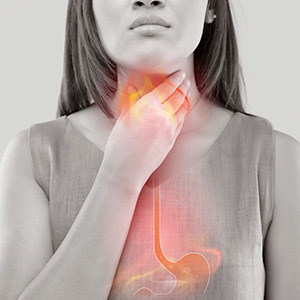GERD, or gastroesophageal reflux disease, is a condition that affects millions of people all over the world. While GERD has many possible causes, the most common one is a problem with the lower esophageal sphincter (LES), which is supposed to keep stomach acid from coming up into your esophagus. If the LES isn’t working properly, stomach acid can cause heartburn, chest pain, and even asthma. GERD can also lead to serious health problems if not treated.
What is GERD, and what are the symptoms?
GERD, or gastroesophageal reflux disease, is a condition that affects millions of people all over the world. While GERD has many possible causes, the most common one is a problem with the lower esophageal sphincter (LES), which is supposed to keep stomach acid from coming up into your esophagus. If the LES isn’t working properly, stomach acid can cause problems like heartburn, chest pain, and even asthma. GERD can also lead to serious health problems if not treated.
Symptoms of GERD include heartburn (a burning sensation in your chest), chest pain, a sour taste in your mouth, regurgitation (the return of food or liquids from the stomach back up into the mouth), difficulty swallowing, and hoarseness. See your doctor for diagnosis and treatment if you have any of these symptoms. There are many treatments available for GERD, so there’s no need to suffer unnecessarily.
What are the causes of GERD, and how can it be treated?
GERD is a long-term (chronic) condition that can be caused by a number of factors, including lifestyle choices and genetics. GERD can be treated in a number of ways, depending on the severity of the condition. Lifestyle changes, such as quitting smoking and losing weight, can often help to reduce GERD symptoms. If lifestyle changes don't help, medications may be prescribed.
How can you prevent GERD from happening in the first place?
GERD, or gastroesophageal reflux disease, is a common disorder that affects millions of people each year. GERD is caused by a backup of stomach acid and other stomach contents into the esophagus, the tube that carries food from your mouth to your stomach. GERD can cause a variety of symptoms, including heartburn, chest pain, and difficulty swallowing. GERD can also lead to serious health problems, such as esophageal cancer.
There are a number of things you can do to help prevent GERD from happening in the first place. Some simple tips include:
- Avoiding large meals - Try to eat smaller meals throughout the day instead of one or two large meals.
- Avoid acidic and spicy foods - These foods can aggravate GERD symptoms.
- Avoiding alcohol and caffeine - These substances can relax the lower esophageal sphincter and increase the risk of GERD symptoms.
- Quitting smoking - Smoking can irritate the esophagus and increase GERD symptoms.
- Elevating your head when you sleep - This will help keep your stomach acids from flowing back up into your esophagus.
Is GERD a serious condition, and what could happen if it's not treated properly?
GERD can be a serious condition if it's not treated properly. GERD can cause a variety of health problems, including esophageal cancer. If you are experiencing GERD symptoms, it's important to see your doctor and get proper treatment. Don't try to treat GERD on your own, as this could lead to more serious problems. GERD is a common condition, but it's important to get proper treatment to avoid serious health complications.

